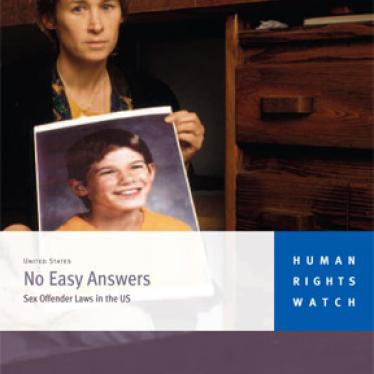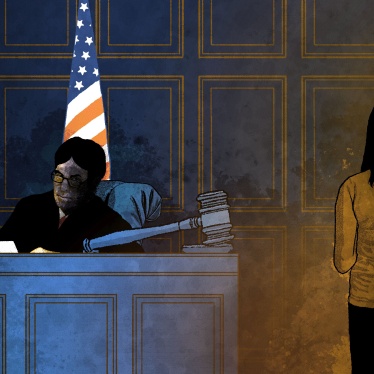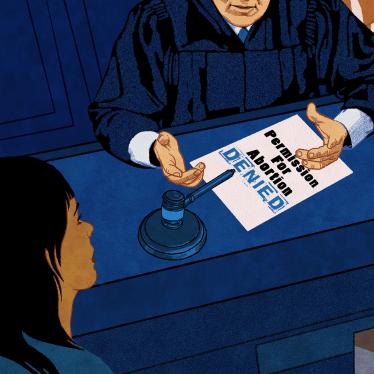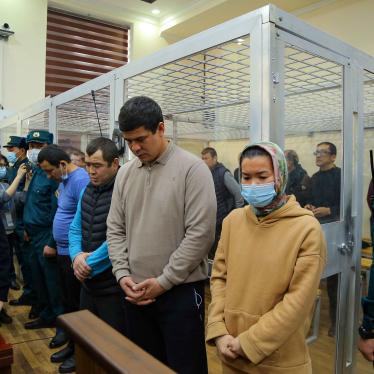Last month, Anthony Sowell, a convicted rapist, was arrested after the decomposed bodies of six women were found at his home. That number has since risen to 11.
Although Sowell was a registered sex offender who regularly checked in with police, as required by state law, his apparent criminal behavior eluded law enforcement. The case raises important questions about Ohio's approach to sexual violence prevention and whether the state's sex-offender registration and community-notification laws-some of the most restrictive in the nation-are protecting the public.
For the past decade, Ohio, like much of the nation, has been obsessed with monitoring and restricting the movements of previously convicted sex offenders like Sowell. Last month, Ohio became the first state to comply with the federal Adam Walsh Act, which greatly expands the types of offenses that trigger sex-offender registration and community notification, and the length of time convicted offenders must stay on the registry.
Courts, policy-makers and the public assume these laws work and are worth the money, even if it means diverting resources from prevention efforts. Ohio spent millions of dollars to comply with the Adam Walsh Act. But focusing so many resources on registration and community notification ignores the reality of sexual violence in the United States.
First, placing all convicted sex offenders on a registry for life makes it nearly impossible for them to re-enter the community with the kind of support system they need to reduce their likelihood of committing another offense. And most systems monitor high-risk offenders like Sowell the same way they monitor the majority of sex offenders, who pose little risk to the community.
But the basic problem with pouring resources into these systems is that an estimated 87 percent of sex crimes each year are committed by individuals without a prior sex-crime conviction. That leaves less money for programs to prevent sexual violence and to counsel victims. There also is less money for rape investigation units, evidence testing and other tools that could help apprehend rapists who never reach the status of convicted offender.
The criminal justice system has a dismal record on responding to rapes when they are first reported. National FBI data show that in 2008, only 21 percent of reported rapes led to an arrest, and there were even fewer convictions. In Ohio, 4,419 rapes were reported in 2008, with 487 arrests-an arrest rate of 11 percent.
One reason rape cases don't move through the system is the way police and prosecutors make decisions about which cases are worth investigating. National studies show that police are less likely to invest resources in so-called acquaintance rape cases, more than 80 percent of those reported, or in cases where they have concerns about the victim's credibility. Experts say this reflects myths still prevalent in the criminal justice system-that a sexual assault isn't really rape unless committed by a stranger, and that women lie about being raped.
The horrible tale finally unfolding in Sowell's case is an extreme example of the criminal justice system's poor response to sex crimes, particularly when the victims are perceived as low in social status. Here was a man who had served 15 years for raping and choking a woman. After his release in 2005, he did register as a sex offender and check in with the police as required. But the monitoring apparently didn't pick up the reports of sexual assault involving him.
Before police arrested Sowell last month, they had at least two previous reports from women claiming that he had attacked them. And in October, neighbors called 9-1-1 to report a naked woman falling from a second-floor window at Sowell's home.
It took a report from a fourth woman that Sowell raped her in September to bring the police to his home for a search, where they started turning up the bodies.
We will never know for certain at what point better detective work or monitoring might have kept those victims alive. But if Ohio lawmakers want to protect society from sexual violence, they should support prevention programs and investigations and prosecutions that take rape as seriously as any other violent crime.
A good start would be to investigate why the Cleveland police failed to act on the reports filed by Sowell's victims and neighbors, and what we can learn from this case about why justice fails so many rape victims.







